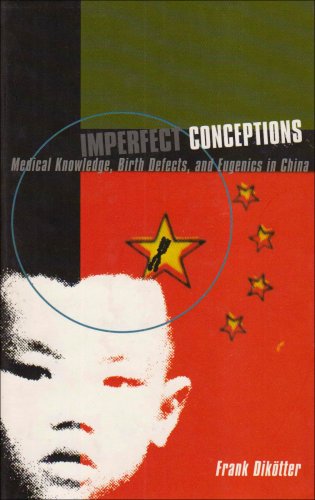If anyone ever comes to you and talks about the great, and probably superior, ways of ancient Chinese medicine, how about you ask that person whether a pregnant woman should eat hare meat even if it means her child gets a hare-cleft or how she should make sure to not look at monsters and ugly people so her child will become neither, or what she should do if she has a ghost pregnancy or gives birth to tadpoles. Tell him that nocturnal emissions are caused by excessive body heat and that heat stimulates the storage of semen, not to mention that all women, children and elderly people are unbalanced and are potentially sick.
And yes, that really is from that allegedly oh so great writing of “ancient” China and not even remotely everything. In fact this book makes a good point as to why eugenics thought found fertile ground in China and why it should not be overlooked to still exist. Sure this book was written in the 1990s but from my perspective the Chinese government has not stopped what they are doing.
And it is not as though those Chinese writings would not sound familiar today: Raising the spectre of racial extinction, many writers claimed that the poor physical quality of the population was one of the key causes of the nation's backwardness... As in Italy and Germany during the same period, the ideal of universal citizenship rights was not very popular; modernising elites insisted that the presumed natural divisions between nations and within the nation be respected.
And apparently the economic reforms and population policies implemented since 1978 have created the conditions for a greater acceptance of eugenic discourse. Apparently in 1995 China enacted a eugenics law that was called "The Law of the People's Republic of China on the Maternal and Infant Health Care."
Makes you wonder whether the eugenics laws of the 1990s are still in effect in China these days. From what I can gather, they probably are.
PS. Menstruation was seen as an evolutionary throwback with dangerous consequences and women basically just less evolved men.

